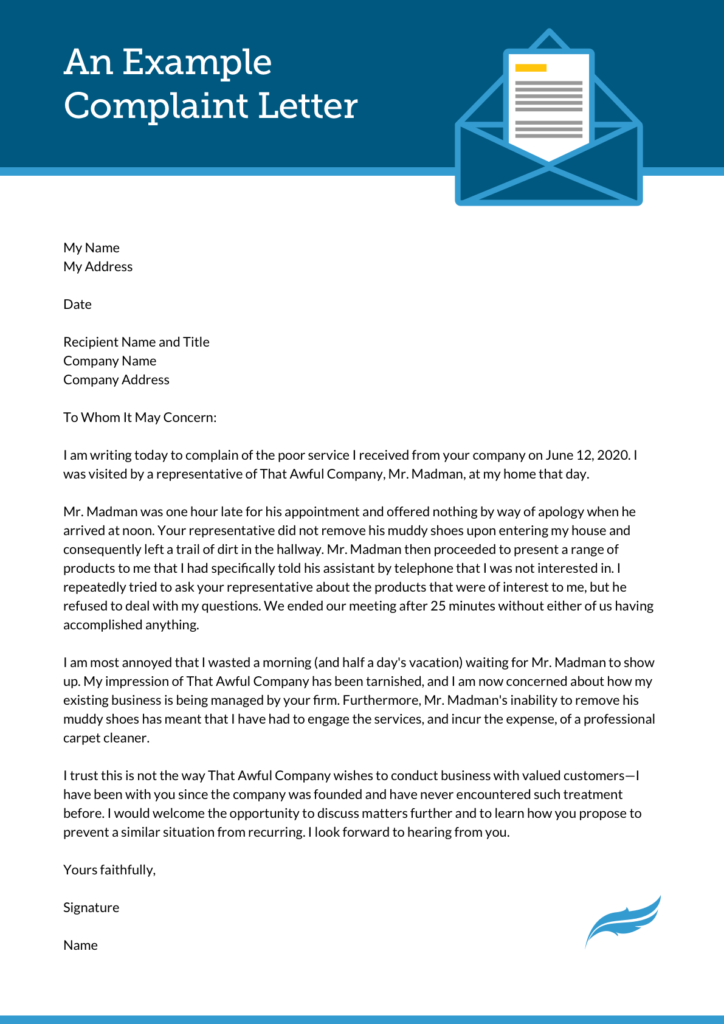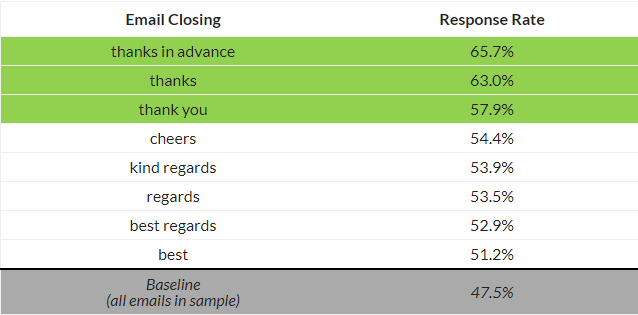Signing off a complaint letter necessitates a professional and polite tone. The appropriate sign-offs vary in formality. For formal letters, options such as “Sincerely,” “Yours faithfully,” or “Respectfully,” are suitable. Neutral choices like “Regards,” “Best regards,” or simply “Best,” strike a balanced tone.
Alternatively, slightly less formal sign-offs like “Thank you,” or “Best wishes,” can be used based on the relationship with the recipient and the severity of the complaint. The chosen sign-off should harmonize with the letter’s tone and content.
How to Use Formal Sign-Offs in Complaint Letters?

Formal sign-offs are appropriate for complaint letters sent in professional or official capacities. They are suitable when addressing higher-ups, in corporate settings, or when the recipient’s identity is not specifically known.
Examples of formal sign-offs
- “Sincerely”: This sign-off is a standard choice for formal letters, indicating genuine respect and professionalism towards the recipient.
- “Yours faithfully”: Typically used when the recipient’s name is unknown or to show a high level of respect and formality.
- “Respectfully”: Conveys politeness and deference, often chosen in situations where the complaint might be sensitive or contentious.
Formal sign-offs like these set a tone of respect and professionalism in your complaint letter. They exhibit courtesy and emphasize the seriousness of the issue being addressed.
Instances where formal sign-offs are appropriate:
- Official Complaints: In situations where the complaint is directed towards a higher authority, a formal sign-off is advisable to maintain professionalism.
- Business or Corporate Settings: When addressing complaints within a professional context, formal sign-offs are usually more suitable, maintaining decorum and respect.
- Unknown Recipient: If the recipient’s identity is unclear or if the letter is addressed to a department rather than an individual, formal sign-offs like “Yours faithfully” might be more appropriate.
What are Neutral Sign-off Examples for Complaint Letters?
Neutral sign-offs are effective when the complaint letter is directed towards colleagues, acquaintances, or situations that require a balanced and approachable tone. They maintain a courteous stance without being too formal or too casual, making them versatile for various professional and semi-formal scenarios.
Examples of neutral sign-offs
- “Regards”: This is a commonly used neutral sign-off that maintains a polite and respectful tone without being overly formal or informal.
- “Best regards”: Similar to “Regards,” it conveys well-wishes and professionalism in a moderately formal manner.
- “Best”: A concise and friendly sign-off that remains professional while expressing goodwill.
Neutral sign-offs like these strike a balance between formality and warmth, making them versatile choices for various complaint scenarios.
Circumstances suited for neutral sign-offs
- Business Correspondence: In professional environments where maintaining a polite yet approachable demeanor is important, neutral sign-offs work well.
- Acquaintances and Colleagues: When the relationship with the recipient is moderately familiar but requires a level of professionalism, neutral sign-offs are appropriate.
- Situations Requiring a Balanced Tone: Complaints that are not excessively formal but still demand a respectful conclusion can benefit from neutral sign-offs.
How to Select Slightly Less Formal Sign-offs for Complaints?

The choice of slightly less formal sign-offs depends on the level of familiarity with the recipient, the desired emotional tone, and the severity of the complaint. They add a personal touch, acknowledging the recipient positively, and are ideal for maintaining a friendly yet professional relationship even amidst a complaint scenario.
Examples of slightly less formal sign-offs
- “Thank you”: Expresses gratitude while concluding the letter, showing appreciation even within the context of a complaint.
- “Best wishes”: Conveys goodwill and positivity, offering a friendly and less formal closure.
- “Warm regards”: Combines warmth and cordiality with a touch of informality, suitable for less severe complaints or when maintaining a friendly tone is essential.
These slightly less formal sign-offs bring a personal touch to the complaint letter, expressing gratitude, goodwill, or warmth in a more relaxed manner.
Factors influencing the choice of slightly less formal sign-offs
If the relationship is more familiar or if the recipient is known personally, slightly less formal sign-offs can be more appropriate.
In less severe complaints or situations where maintaining a friendly rapport is crucial, these sign-offs soften the tone without undermining the seriousness of the issue.
When the writer wishes to convey a sense of appreciation, warmth, or positivity despite the complaint, these sign-offs serve that purpose.
FAQ’s
How do you sign off a formal letter?
To sign off a formal letter, you can use phrases like “Sincerely,” “Yours faithfully,” or “Respectfully,” followed by your name.
How do you sign formally?
Signing formally involves using respectful language and formal sign-offs, such as “Sincerely” or “Yours truly,” to conclude a letter or message.
How do you sign off a message?
Signing off a message can be done with phrases like “Best regards,” “Regards,” or simply your name, depending on the level of formality.
What is a polite formal way to end a letter called?
A polite and formal way to end a letter is often referred to as a complimentary close or a valediction.
Is it sincere or respectful?
Both “Sincerely” and “Respectfully” are suitable sign-offs for formal letters, but the choice depends on the context and relationship with the recipient.
Is taking care a good sign off?
“Take care” is a friendly and casual sign-off suitable for less formal communications or when expressing concern for the recipient’s well-being.
Final Words
Wrapping up, picking the right way to say bye in a complaint letter is important. Fancy ones like “Sincerely” or “Yours faithfully” are serious and respectful. Then there are neutral ones like “Regards” or “Best regards” that are kind of friendly but still polite. If you want to be a bit more friendly, go for “Thank you” or “Best wishes”. Just make sure whatever you pick matches how serious the problem is and how well you know the person you’re writing to. It helps end your letter nicely!

